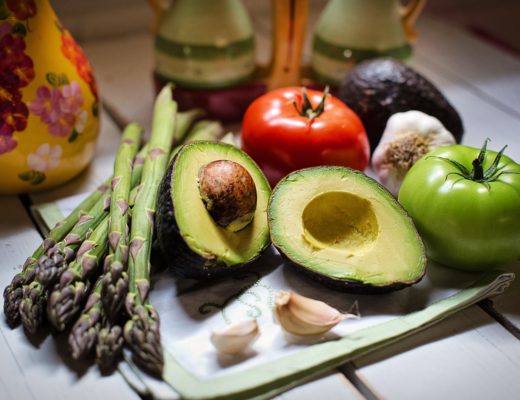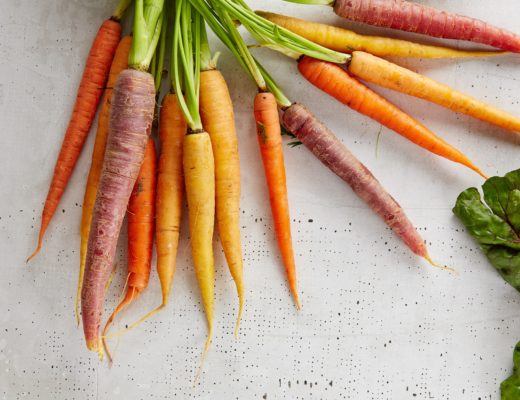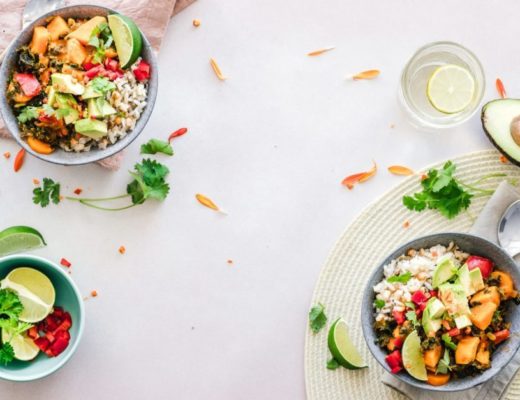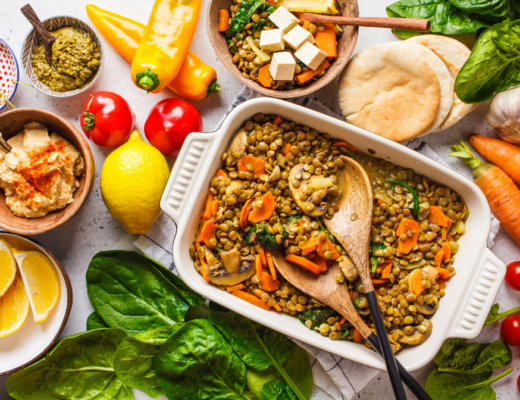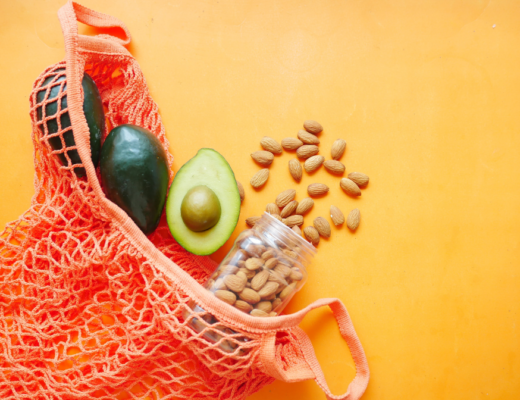There are so many myths about going plant based – some I even believed before going plant based myself.
In this post, I’ll break down three of the biggest myths I’ve come across about going plant based.
1) Milk is the only source of calcium
Shortly after cutting dairy from my diet, someone asked, “but where will you get calcium!?”
And honestly, I didn’t know at the time.
What I did know was that I had a stomachache for days after eating it, and I wasn’t going to continue eating something that made me sick.
I grew up in the age of “Milk, it does a body good” and “Got Milk?” advertising campaigns. I vividly remember those milk mustache ads. I drank big glasses of milk every day for breakfast.
But I learned a few things on my own plant based journey:
Cows’ milk exists for the same reason as the milk of every other animal – to feed its babies. While it does contain nutrients that people can benefit from, it isn’t a necessary part of our diets.
When we were babies, our bodies produced a special enzyme called lactase that helped us digest the lactose in our mother’s milk. As we grew older, for many of us this enzyme stopped being produced, which means we don’t digest dairy well. This is why we experience symptoms of lactose intolerance.
So it turns out that lactose intolerance isn’t a disease or deficiency. It’s part of the normal development of all animals that drink milk from their mothers as babies.
Most of the world’s population struggles to digest dairy after infancy for this reason. African Americans, Native Americans, Asian Americans, and Latinos are more likely to experience lactose intolerance.
In some places, such as Northern Europe, many people carry a gene that allows them to digest lactose in adulthood. But this is the exception, rather than the rule when you consider the global population.
Thankfully, plant foods offer plenty of calcium – without the stomach aches. Leafy greens such as collard and mustard greens, and beans like navy and great northern beans are some of the best sources.
2) Plant based food is expensive
If I had a dollar for every time I heard that eating healthy is expensive…let’s just say I could afford all the healthy food I wanted.
And honestly, I understand where this perception comes from.
It’s when you go into a coffee shop and regular milk is pennies but oat or almond milk is like…$18.
Or when you go into Whole Foods trying to be healthy then feel like it should really be called Whole Paycheck.
OR when you hear how bad pesticides are and decide to buy organic then you’re picking your jaw up off the floor after seeing the prices.
BUT – all that being said, I promise you can still eat healthy on a budget.
You just need to know what to look for, for example:
- Dried beans are very inexpensive and so good for you
- Canned beans don’t cost much more
- In season produce is often abundant and affordable, especially toward the end of the season (don’t be afraid to use your freezer to stock up).
- Growing even a few vegetables at home can dramatically reduce your grocery bill
Related: Start a Tiny Garden in 5 Easy Steps
3) You’ll offend your family and friends
So many of the women I talk to about changing their diets for the better are concerned that it will create strain in their relationships with friends and family or make social settings difficult and awkward.
They don’t want to go hungry at events and gatherings.
Or get sarcastic comments from family and friends because they feel judged.
And it’s honestly true that people may struggle initially when you start making changes in your life.
The part that’s a myth is that you’ll always be on the sidelines eating boring food that doesn’t taste good, or that it’s impossible that your family and friends would ever support you.
Here’s why:
Plant based options are becoming more and more prevalent by the day. You may be surprised by what’s available.
When attending events where there’s no plant based entre, it’s often a non-issue to fill your plate with side dishes, pack a lunch, reach for a backup snack from your purse, or grab a plant based option at a local take out place.
Or – if it’s something you’re comfortable with – go with the standard option knowing you will get back to your usual eating habits as soon as you’re able.
The diet mentality says you “have to” eat certain things and you “can’t” eat others.
On the other hand, when you make a lifestyle change like going plant based, you’re thinking more about the big picture. The overall context of your diet.
Eat in a way that aligns with your goals most of the time, and the occasional detour won’t throw you off course.
Also, instead of making your family and friends uncomfortable, changing your diet could open you up to new options to explore.
There are plenty of restaurants that have good plant based options. There are also plant based restaurants that have options that omnivores will enjoy.
It’s easy enough using restaurant finder apps like Yelp or Happy Cow to locate plant based food.
As for family and friends who may be skeptical, here’s the thing: when other people make positive changes, it makes us look at ourselves.
There are two kinds of people:
1) Those of us who look at ourselves, see things we don’t like, and are motivated to change.
2) Those who look at ourselves, see things we don’t like, and are determined to bring others down to where we feel we are.
Sometimes, the second type comes around over time. The best thing you can do in this situation is have compassion, let them know you’re making choices for you, and respect their choices.
You never know – you may be surprised when they start giving you tips and recipes down the line!
Why humans have evolved to drink milk https://www.bbc.com/future/article/20190218-when-did-humans-start-drinking-cows-milk
Calcium and strong bones; Physician’s Committee for Responsible Medicine
https://www.pcrm.org/good-nutrition/nutrition-information/health-concerns-about-dairy/calcium-and-strong-bones


